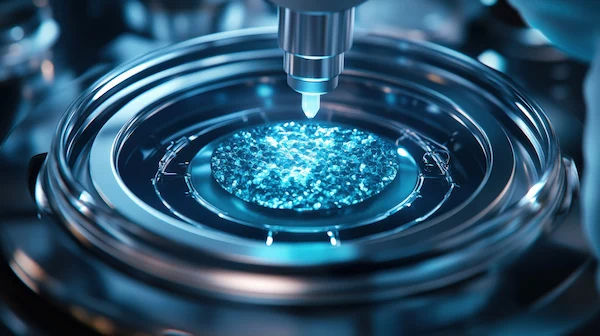Guide to 7 Weeks Pregnant
Discover what to expect at 7 weeks pregnant. Learn about your baby’s development, common symptoms, and essential health tips to support a safe and healthy pregnancy.


Introduction
Congratulations! At 7 weeks pregnant, you're embarking on one of life's most incredible journeys. You're likely becoming more aware of the changes happening within your body, even if there's not much of a bump to show for it yet. This week is a period of rapid, crucial development for your little one, often accompanied by a host of early pregnancy symptoms that confirm something amazing is underway. This comprehensive guide will walk you through exactly what to expect at 7 weeks pregnant. We'll cover your baby's incredible growth, the common symptoms you might be experiencing, and the essential steps you should take to support a healthy pregnancy. Whether you're feeling excited, nervous, or a mix of everything, we’re here to provide the information and reassurance you need.
Your Baby's Development at 7 Weeks
The seventh week of pregnancy is a landmark period where your baby transitions from a tiny cluster of cells to a distinct, albeit tiny, human form. The changes happening this week are nothing short of miraculous.
How Big Is Your Baby?
At 7 weeks pregnant, your baby is about the size of a blueberry or a small raspberry, measuring roughly 10,000 times larger than they were at conception just a few weeks ago. While still tiny—approximately 0.5 inches (1.3 cm) from crown to rump—the growth rate is explosive.
Major Milestones This Week
This week is all about refining the foundations that were laid in previous weeks. The arm and leg buds that appeared now begin to flatten and form paddle-like hands and feet. Tiny ridges are starting to appear that will eventually become your baby's precious fingers and toes.
The Brain Growth Spurt
One of the most significant developments at 7 weeks is the rapid growth of your baby's brain. The brain is divided into three distinct parts: the forebrain, midbrain, and hindbrain. This complex process sets the stage for all future brain and nervous system function. The head is growing at a faster rate than the rest of the body to accommodate this massive brain growth, giving your embryo a characteristic curved appearance.
Arm and Leg Buds Form
Those little buds are becoming more defined. The arm buds grow longer and divide into a hand and arm segment. At the tips, the hand plates begin to form where fingers will later develop. Similarly, the leg buds start to show signs of feet. It won't be long before they start to look like tiny limbs!
The Heart is Beating
Your baby's heart, which started beating a week or two ago, has now divided into the right and left chambers. It's beating at an incredible rate of about 150-160 beats per minute—nearly twice as fast as your own heart! While you likely won't hear it yet without a vaginal ultrasound, this tiny, rhythmic thumping is a powerful sign of the life growing inside you.
Consult a Obstetrician-Gynaecologist for the best advice
Your Body at 7 Weeks Pregnant: Common Symptoms
While your baby is busy growing, your body is working overtime to support this new life, primarily through a surge of pregnancy hormones like hCG and progesterone. This leads to a variety of early pregnancy symptoms at 7 weeks.
Morning Sickness and Nausea
Despite its name, "morning" sickness can strike at any time of day or night. It's one of the most common signs of pregnancy, affecting up to 80% of pregnant people. This is primarily driven by the rising levels of the hCG hormone. To manage it, try eating small, frequent meals (an empty stomach can make nausea worse), snacking on ginger biscuits, and sipping on cold water or ginger tea. If your nausea is severe and you are unable to keep any food or liquids down, it's important to consult a doctor. You can consult a doctor online with Apollo24|7 for quick advice on managing severe morning sickness.
Overwhelming Fatigue
Feeling like you could sleep for a year? This is completely normal. Your body is using enormous amounts of energy to build the placenta—the life-support system for your baby. Combined with the sedative effect of rising progesterone levels, it's no wonder you're exhausted. Listen to your body and rest whenever you can.
Tender and Changing Breasts
Your breasts may feel sore, tingly, and heavier. The areolas (the skin around your nipples) might darken and small, bumpy Montgomery's tubercles may become more prominent. This is your body's way of preparing for breastfeeding much later down the line. A supportive, non-underwire bra can provide significant comfort.
Other Frequent Symptoms
You might also experience:
- Food Aversions or Cravings: Suddenly hating the smell of coffee or craving pickles is classic.
- Increased Urination: Your growing uterus is already starting to press on your bladder.
- Mild Cramping or Spotting: Light cramping without heavy bleeding can be normal as your uterus expands. However, any severe pain or heavy bleeding warrants an immediate call to your doctor.
- Mood Swings: The hormonal rollercoaster can make you feel elated one moment and tearful the next.
Your Checklist for 7 Weeks Pregnant
Staying on top of your health is the best thing you can do for yourself and your baby. Here’s a practical checklist for this week.
Schedule Your First Prenatal Appointment
If you haven't already, now is the time to schedule your first prenatal visit. This appointment is crucial for confirming your pregnancy, establishing a due date, and running baseline health tests. Apollo24|7 offers a convenient home collection for initial blood tests to check your blood type, iron levels, and more, making the process easier.
Nutrition Focus: Key Vitamins and Foods
Your pregnancy nutrition is vital. Continue taking a prenatal vitamin with at least 400 mcg of folic acid, which is critical for preventing neural tube defects. Focus on eating a balanced diet rich in whole foods, lean proteins, and fiber to combat constipation. Stay hydrated!
Lifestyle Adjustments for a Healthy Pregnancy
- Avoid: Alcohol, smoking, recreational drugs, and raw or undercooked foods.
- Continue: Gentle exercise like walking or prenatal yoga, unless your doctor advises otherwise.
- Listen: To your body. Rest when you need to, and don't push yourself to pre-pregnancy limits.
When to Seek Medical Advice
While many symptoms are normal, it's important to know the red flags. Contact your healthcare provider immediately if you experience:
- Heavy bleeding (soaking a pad an hour).
- Severe abdominal pain or cramping.
- Fever over 100.4°F (38°C).
- Dizziness or fainting.
- Painful or burning urination.
If you experience any of these severe symptoms, it's crucial to consult a doctor immediately. You can book a physical visit to a doctor with Apollo24|7 for prompt evaluation and care.
Conclusion
Reaching the 7-week mark is a significant milestone in your first trimester pregnancy guide. Your body is working tirelessly to nurture the incredible transformation of a tiny embryo into your future child. While the symptoms can be challenging, they are often a positive sign that your pregnancy is progressing and hormones are doing their job. Remember, every pregnancy is unique, so try not to compare your experience to others. Focus on taking care of yourself, making those important early healthcare decisions, and allowing yourself to feel all the emotions that come with this journey. You've got this! For any persistent concerns or symptoms that worry you, never hesitate to reach out to your healthcare provider for personalised advice and reassurance.
Consult a Obstetrician-Gynaecologist for the best advice
Consult a Obstetrician-Gynaecologist for the best advice
Dr. K Anusha
Obstetrician and Gynaecologist
4 Years • MBBS, DGO
Yemmiganur
SRINIVASAA HOSPITAL, Yemmiganur

Dr. Somdutta Basu
Obstetrician and Gynaecologist
7 Years • MBBS, MS Obstetrics & Gynaecology
Bansdroni
Siddhita Healthcare., Bansdroni

Dr. Srinka Mukherjee
Obstetrician and Gynaecologist
7 Years • MBBS, MS Obstetrics & Gynaecology
Kolkata
Doctor's World, Kolkata

Dr. Parul Sharma
Obstetrician and Gynaecologist
8 Years • MBBS, MS (Obstetrics & Gynaecology)
New Delhi
THE DOCTORS NESST, New Delhi

Dr. Rituparna De
Obstetrician and Gynaecologist
7 Years • MBBS, MS (Obstetrics & Gynaecology)
Kolkata
MCR SUPER SPECIALITY POLY CLINIC & PATHOLOGY, Kolkata
Consult a Obstetrician-Gynaecologist for the best advice
Dr. K Anusha
Obstetrician and Gynaecologist
4 Years • MBBS, DGO
Yemmiganur
SRINIVASAA HOSPITAL, Yemmiganur

Dr. Somdutta Basu
Obstetrician and Gynaecologist
7 Years • MBBS, MS Obstetrics & Gynaecology
Bansdroni
Siddhita Healthcare., Bansdroni

Dr. Srinka Mukherjee
Obstetrician and Gynaecologist
7 Years • MBBS, MS Obstetrics & Gynaecology
Kolkata
Doctor's World, Kolkata

Dr. Parul Sharma
Obstetrician and Gynaecologist
8 Years • MBBS, MS (Obstetrics & Gynaecology)
New Delhi
THE DOCTORS NESST, New Delhi

Dr. Rituparna De
Obstetrician and Gynaecologist
7 Years • MBBS, MS (Obstetrics & Gynaecology)
Kolkata
MCR SUPER SPECIALITY POLY CLINIC & PATHOLOGY, Kolkata
More articles from pregnancy
Frequently Asked Questions
1. Is it normal not to have symptoms at 7 weeks pregnant?
Yes, it is possible. Every woman and every pregnancy is different. Some experience severe symptoms, while others have very few. The absence of symptoms doesn't necessarily mean anything is wrong, as hormone levels can vary. However, if you have symptoms that suddenly disappear, it's wise to mention it to your doctor for peace of mind.
2. What will I see on a 7-week ultrasound?
On a transvaginal ultrasound at 7 weeks, you should be able to see the gestational sac, the yolk sac, and the foetal pole (your baby). Most importantly, the technician should be able to detect a foetal heartbeat. The embryo will still look like a small blob, but the heartbeat is a very positive sign.
3. What does cramping at 7 weeks pregnant mean?
Mild, period-like cramping is very common as your uterus expands and stretches to make room for your growing embryo. However, if the cramping is severe, one-sided, or accompanied by heavy bleeding, it could be a sign of a problem like an ectopic pregnancy or miscarriage, and you should seek medical attention immediately.
4. Can you start showing at 7 weeks?
It's very uncommon to have a visible 'baby bump' at 7 weeks. Any bloating or slight thickening around your waist is likely due to hormonal changes, water retention, and bloating—not the size of your uterus, which is still tucked down inside your pelvis.
5. What should I avoid at 7 weeks pregnant?
You should avoid alcohol, smoking, illicit drugs, and exposure to harmful chemicals. Limit caffeine intake. Avoid raw or undercooked meat, fish high in mercury, unpasteurised dairy products, and deli meats (unless heated thoroughly). Also, discuss any medications or supplements with your doctor.




